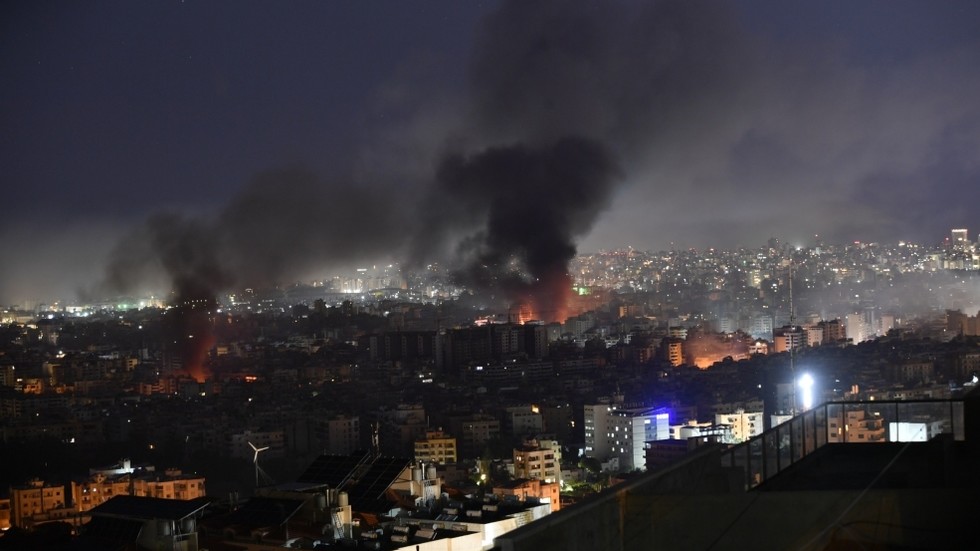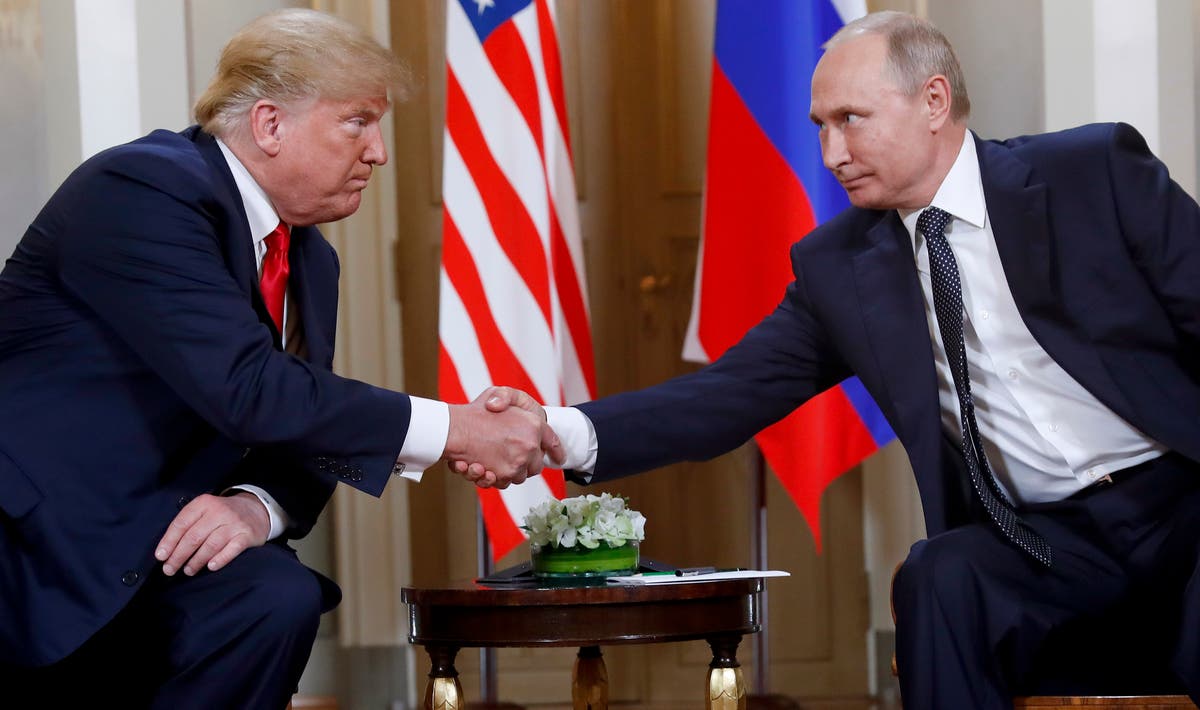Israel is expected to attack Iran relatively soon and with a power that it has never done before following Tehran’s October 1 direct assault on the Jewish state.
By YONAH JEREMY BOB OCTOBER 5, 2024 22:37 Anti-missile system fires interception missiles as missiles fired from Iran, as seen in the West Bank on October 1, 2024
(photo credit: WISAM HASHLAMOUN/FLASH90)
Anti-missile system fires interception missiles as missiles fired from Iran, as seen in the West Bank on October 1, 2024
(photo credit: WISAM HASHLAMOUN/FLASH90)
Over the New Year holiday and all of last week, the regional war that many wanted to avoid since October 7 has finally arrived.
Some still hope that it will be a smaller version of a regional war and not the maximal version, but there is no question that going into the new Jewish year, the war in Gaza is no longer the main or second main front.
Rather, Lebanon and Iran have replaced Hamas as the main antagonists for Israel, though the Gazan terror group is still in play, and there are still real threats from Yemen, Syrian militias, Iraqi militias, and Hamas terrorists in the West Bank.
Israel is expected to attack Iran relatively soon and with a power that it has never done before following Tehran’s October 1 direct assault on the Jewish state – the second of the year, but the harshest by far.
How soon it will attack depends on the status of the invasion of Lebanon. A quick strategic decision was made on Tuesday not to retaliate immediately but to keep the focus on pummeling Hezbollah and only to respond once there was confidence that the Lebanon invasion goals would be achieved.
That confidence was shaken on October 2 when multiple IDF units were ambushed by Hezbollah, but they have not had repeat success since. If the IDF avoids losses and feels that it is on track to eliminating the terrorist group’s forward Radwan positions in southern Lebanon within weeks, as originally planned, it may hit the Islamic Republic even before the invasion is wrapped up and potentially very soon.
If the invasion slows or faces setbacks, the attack on Iran could be delayed some weeks, and in some scenarios, even until after US Election Day on November 5.
Question of the target in Israel's retaliation
What to attack? The US would prefer that Israel strike some mix of Iranian ballistic missile sites, drone sites, and possibly some of its commanders involved in running the attacks against the Jewish state.
Washington would prefer that Jerusalem not strike Iran’s nuclear program or sources of its oil-based economy or electricity.
Israel’s defense establishment is not unanimous on what to do. Some are more interested than they have ever been in hitting Iran hard, given that Tehran has shown it is no longer a “practical” actor who will suffice with smaller potshots at Israel through its proxies.
Stay updated with the latest news!
Subscribe to The Jerusalem Post Newsletter
But others emphasize that a strike that goes too far against US recommendations could risk Washington not providing a future defense blanket against a third round of Iranian ballistic missile attacks. This would be especially true about regional Sunni allies deciding not to help Jerusalem or being unable to help if they themselves came under Iranian attack as weak Israeli-US allies to hit. There are also fears that the Islamic Republic could destabilize the global economy.
Israel has killed around 400 Hezbollah fighters in only a week of the invasion after killing around 500 over 11 months. Further, the IDF has eliminated not only Hezbollah chief Hassan Nasrallah but probably also his likely successor Hashem Saffiedine, nearly all of his war council, and nearly all of the top second-level and third-level Hezbollah commanders, including Fuad Shukr, Ibrahim Aqil, and Ali Karaki. In turn, the military has lost 11 soldiers since the invasion started, including from a drone attack in the Golan by Iraqi militias.
The stated goals are to eliminate all of Hezbollah’s Radwan Force infrastructure for invading northern Israel that is close to the border and to make sure that Hezbollah forces are gone from southern Lebanon and do not return.
An unstated goal is to convince the terrorist group to stop firing rockets into the Jewish state without the need to invade deeper into the country. This second point is the messiest one, given that the IDF has no clear way of accomplishing the goal, and it has killed most of the top Hezbollah leaders who could potentially tell rocket teams to stand down.
It is also unclear what incentive Hezbollah has to stand down given the beating it has already taken and the reluctance of Israel to get drawn into a quagmire in Lebanon for more than weeks, or on the longer end, months.
Very little is happening in Gaza. There is a very small contingent of IDF forces there. Sometimes the IDF moves civilians from one place to another. It regularly targets mid-level Hamas and Islamic Jihad commanders and seeks out other small Hamas cells that are hiding. But without a clear way to get Gaza chief Yahya Sinwar and to get back the remaining 50 live and 50 or so dead hostages – and with the government still opposed to including the Palestinian Authority, a condition for most Israeli allies to help control and rebuild Gaza – a months-long stalemate has taken hold.
The West Bank is on fire, as evidenced by the terror attack by Hamas terrorists from Hebron in Tel Aviv on October 1 and by the regular required operations by the IDF in Jenin, Tulkarm, and elsewhere. The military is doing the best it can to keep a lid on the situation, but until the other fronts quiet down, there is little chance that this one also will. Even if the other fronts calm down, the West Bank has been in a constant state of low-grade conflict since March 2022, long before the current war. A mix of more force and a diplomatic horizon of some kind is probably the only way to eventually bring calm.
Yemen and Iraq: Israel hopes that its recent counterattack on Yemen will buy enough time to finish the other war fronts before the Houthis attack again. After Israel’s July attack on them, the IDF bought some relative quiet time for nearly two months. Due to diplomatic issues concerning the US, Jerusalem has so far been afraid to retaliate strongly within Iraq, though prior to the war, it had done so covertly a few times.

 By The Jerusalem Post (World News) | Created at 2024-10-05 19:45:15 | Updated at 2024-10-05 22:44:48
3 hours ago
By The Jerusalem Post (World News) | Created at 2024-10-05 19:45:15 | Updated at 2024-10-05 22:44:48
3 hours ago



